A Surgeon’s Personal Experience with Breast Cancer
In May of 2015, Dr. Laura Witherspoon, breast cancer surgeon at University Surgical Associates, was surprised with the news that she never saw coming. It had a been an especially busy month for her family – her older son was graduating from Vanderbilt and moving to Los Angeles to start his career, and her daughter was returning home from a year abroad in Japan, China and Nepal. It was a time of celebration and reunions. She never anticipated that she would be facing down the disease that she spent had spent her career fighting – breast cancer.
“New calcifications were identified on my routine mammogram, and because of especially dense breast tissue, I knew I needed a stereotactic breast biopsy. So I called my friend and colleague Dr. Cockerham, and he performed the biopsy and ultrasound. Pathology confirmed that it was in fact breast cancer,” says Dr. Witherspoon. “Because there were six different spots of cancer in my left breast, I decided on a full mastectomy and reconstruction, and in about three weeks, I went in for surgery.”
Dr. Witherspoon’s initial surgery was a success and testing on her lymph nodes came back negative. Her next step was to see a medical oncologist, and again she chose a trusted friend, oncologist, and breast cancer specialist, Dr. Brooke Daniel, to guide treatment decisions and help her decide whether or not chemotherapy was needed. Genomic testing was inconclusive, so she turned to an oncologist at Vanderbilt to gain additional perspective. She ultimately recommended four rounds of chemotherapy.
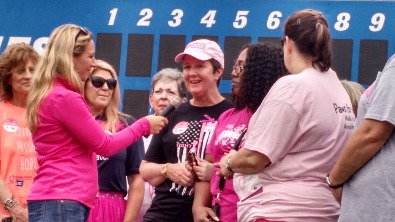
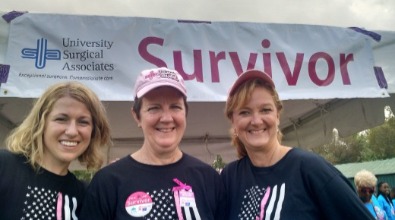
“I was very fortunate to receive care and counsel from surgeons and specialists who I’ve worked with personally for many years and trust implicitly, which gave me a greater peace of mind throughout the process that’s likely not available to my patients,” says Dr. Witherspoon. “Going through this experience really gave me a deeper perspective on what my patients are going through, and it’s helped me empathize in a way I couldn’t have before.”
For many women with breast cancer, initial treatment of surgery and chemotherapy is enough to keep cancer at bay. Unfortunately for Dr. Witherspoon, a few short years later, her cancer returned. A nagging pain in her hip led to an x-ray and then a PET scan, which showed something suspicious in the base of her right lung.
“It was a small wispy thing – and we all wondered, could it be breast cancer? Because it didn’t light up on imaging, we decided to watch it closely. So I had several CTs that year and it didn’t change. I went on this way for another year – until 2019, when it changed into something looking like a cancer. Now it was time to know for sure,” Dr. Witherspoon said.
A navigation bronchoscopy, a visual examination of the inside of the lung, allowed samples to be taken of the tissue in the lung. Pathology once again confirmed it was cancer, which prompted a switch to an injectable hormone blocker and CDK4 inhibitors, which interrupt signals that stimulate cancerous cells. She’s been on those medications for two years, which appear to be working well.
“The drugs I’m taking right now, I’ll be taking for the foreseeable future, until they stop working. I’m in a maintenance phase with this diagnosis, and periodic CTs monitor my progress. The medication is working, and we count that as success,” says Dr. Witherspoon. “But the treatment has side effects like fatigue and a compromised immune system, which makes me more susceptible to many different illnesses. All in all, I’m doing well and taking things one day at a time.”
For Dr. Witherspoon, the experience of having breast cancer – after working throughout her entire career to fight this disease – has been a surreal experience. As a breast surgeon with more than 25 years of experience, she understood the process and knew the ins and outs of her treatment options. And because she knew she was receiving the very best care, she didn’t experience the deep anxiety that many women with breast cancer face.
Trust is the Key
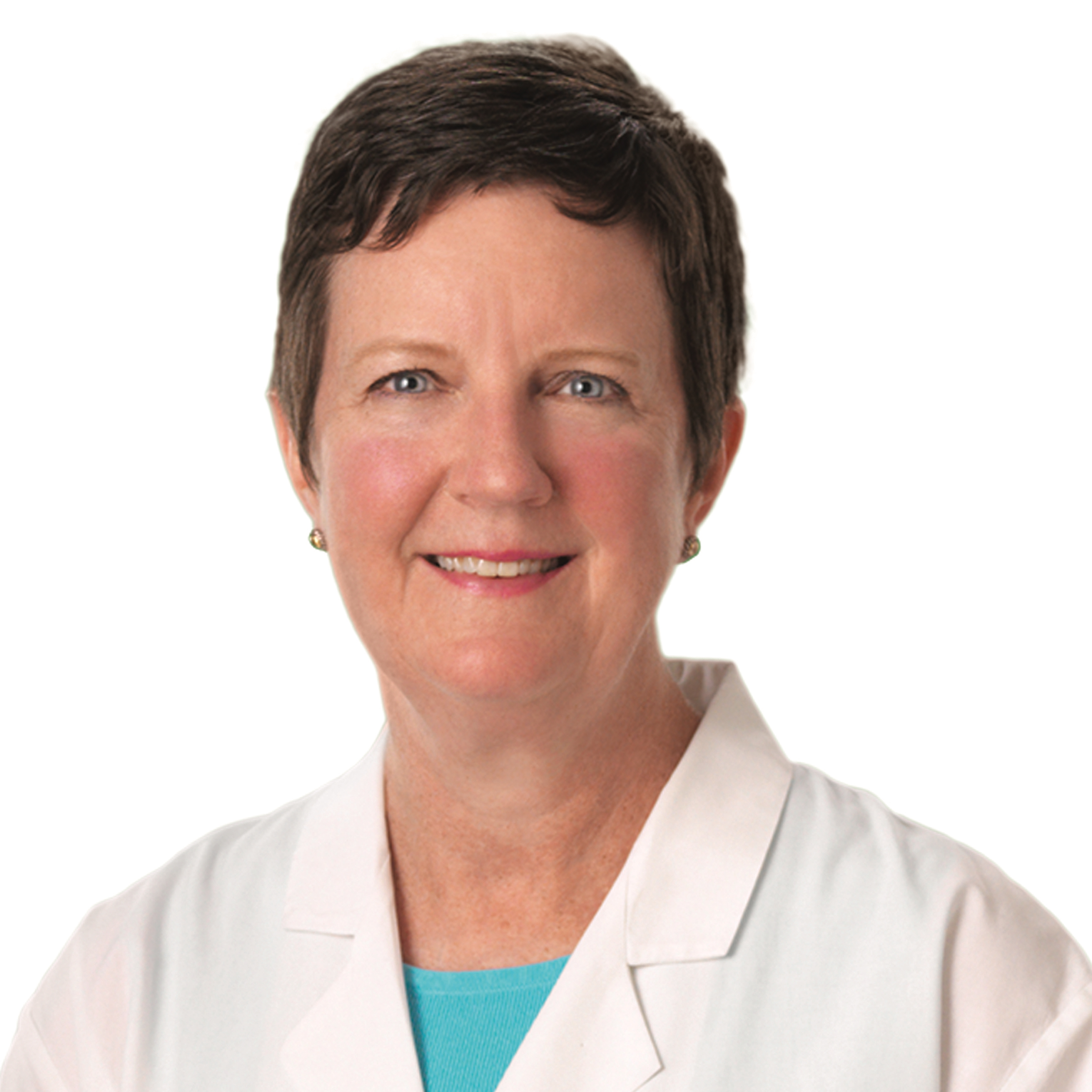
“For me, it all came down to trust. I trusted my surgeon, my oncologist, my anesthesiologist – all the members of my team who were helping take care of me. Understanding the importance of that trust has deepened my resolve to connect with patients and help them feel comfortable and heard,” says Dr. Witherspoon. “Sometimes I share my breast cancer story because that’s helpful for some people. And for others, that’s not what they need. But in every situation, I want them to feel like someone is on their side – that I’m there to answer questions, and that our larger team is ready to address the many different complications and difficulties that can arise with breast cancer treatment. We recognize that it’s a confusing and scary time, but we’re always here to help you through it. Knowing the right people were there to take care of me made all the difference.”
Click here for more information about University Surgical’s clinical and support services for the diagnosis and treatment of breast cancer. To schedule an appointment, call 423.267.0466.
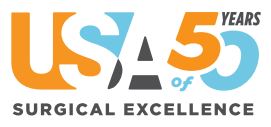
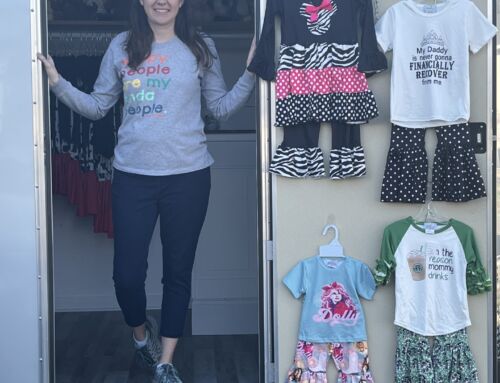
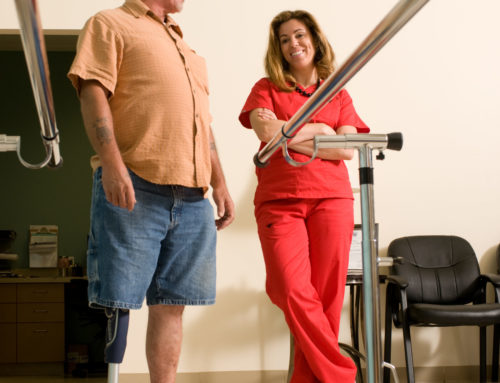
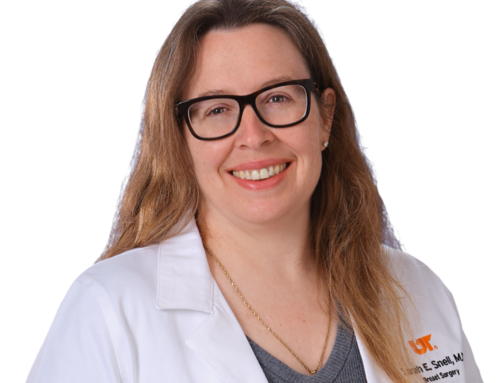
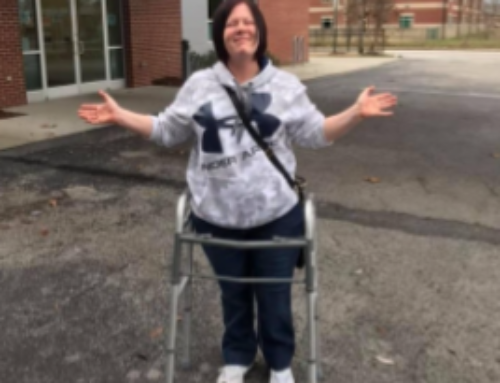
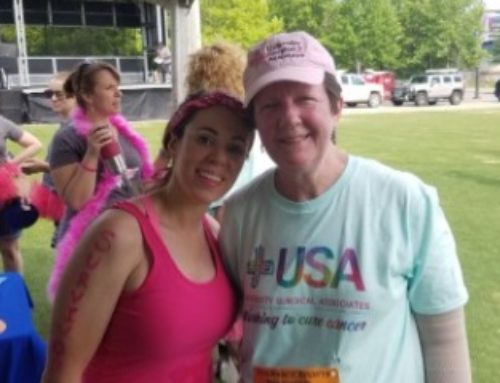

Leave A Comment